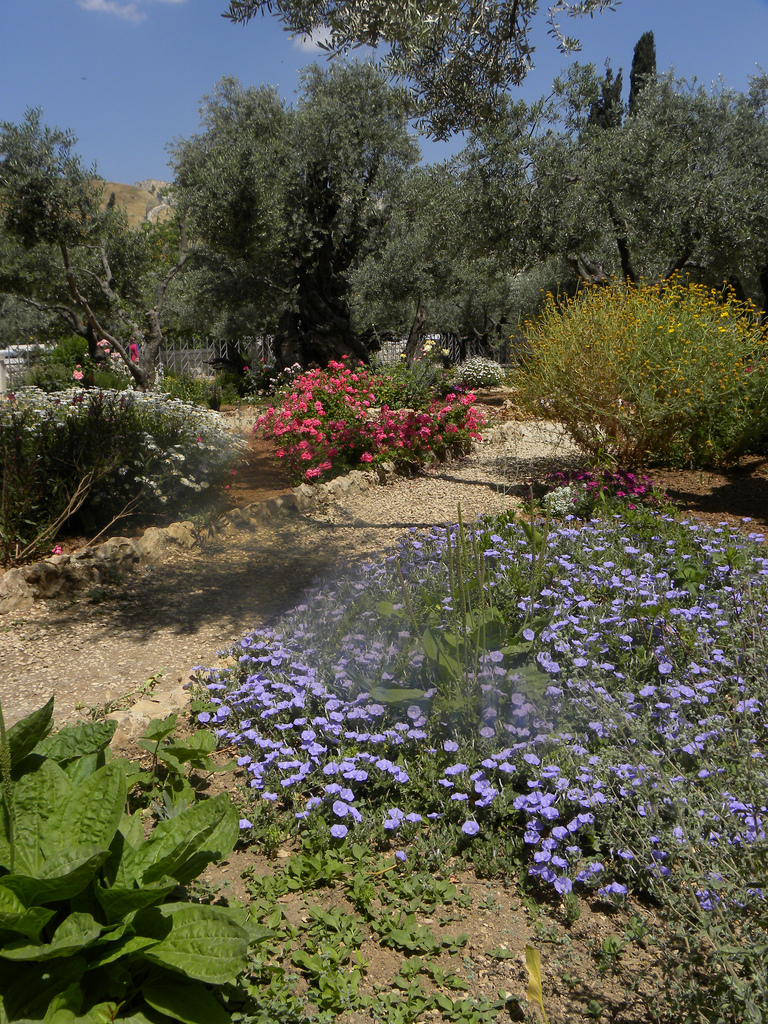In my previous post, I discussed the way Christians sometimes wrongly “follow the peace” in their decision-making. I argued that the Bible never tells us to rely on an emotional feeling as the ultimate determinant of our decisions.
Rather than always experiencing emotional calm when we follow God, we should realize that oftentimes obedience, service, and sacrifice will actually be difficult. In fact, if we find ourselves getting too “comfortable” or “peaceful,” we may have cause to ask ourselves if we are indeed following the Christ who calls us to take up our cross and follow Him. Obedience to God means doing hard things, growing in character, learning to love people we may struggle to love, getting outside our comfort zone, and often denying ourselves for the sake of God and others. This is not a cushy, easy faith.
Think of Jesus Himself. When He was called to go to the cross for our redemption, He knew it was what needed to be done, but He didn’t “have a peace about it.” Rather, He was under such psychological stress that He actually sweat blood. And He begged God the Father for another way. Now, I’m not saying we all should or will feel that kind of stress. Nor am I saying the presence of stress should necessarily be a determinant that we are in God’s will anymore than the absence of it would be. But I bring up this story to remind us that even the perfect Son of God did not experience lightness of spirit or emotional peace even when He was in the very center of God’s will. Sometimes when we follow God, we have to do things that scare us.
(This is true of life in general too, by the way. To grow as a person of character in community with others, we must do things that initially frighten us. We must do difficult things for our own good and the good of those around us. This is a spiritual truth and also a common sense truth.)
Obedience to God means using two tools that He has given us. First, we must use the tool of Scripture. Not in a proof-texting way where we rely on a single verse taken out of context. Rather, good use of Scripture means knowing it backwards and forwards. It means understanding the context of the passage in question and how it relates to the rest of Scripture. It means understanding broad Scriptural themes.
Second, making decisions means daring to use our minds, our common sense, and wisdom. It does not mean shutting our minds to the facts because they are inconvenient to what we want to do anyway. It means that not all decisions will be clear-cut. God doesn’t care where you eat lunch–although broadly speaking, He cares that you take good care of your body. God may not have a specific person for you to marry–but He certainly has wise principles for you as you go about choosing that person. God may or may not have one specific calling for you, but He has given you gifts and opportunities and wisdom to go about finding a faithful place to serve Him and to serve your neighbor well. God may not have one specific car that is right for you to buy, but He does provide general principles about managing money well and being a person of generosity.
Many of us are decision-phobic. We want decisions to be easy and clear-cut. And they often are not. So we try to stamp a “God told me to” on our decision to help make it easier and to keep our decision from being criticized. Who can argue with God, right? (Other Christians probably won’t, even if they privately think our claim of a divine mandate is a little too easy.)
We also fear taking full responsibility for making a decision. If we say God told us to do something, we can always blame Him if things go awry. If things go right, we will simply pat ourselves on the back for reading the inner signs correctly.
Here’s the thing, though. When we fail to make decisions ourselves, we are missing out on one of the great opportunities and blessings we have been given. As human beings, we have been given incredible power and responsibility here on earth. In Genesis 1:26-28, God gives rulership over the sphere of earth to human beings. Rulership includes the ability to gather all the important, relevant information and make wise decisions–for one’s self, in service to one’s neighbor, and for creation itself. We are stewards of earth, of our lives, and of our communities. We get the opportunity to try stuff. We won’t always get it right–and that’s scary–but we can try to make the best decisions possible with the information available. God did not have to share His power with us in this way, but He chose to. That’s a profound privilege.
So don’t make your decisions based on some elusive emotional feeling that may just as well lead you astray as steer you in the right way. Rather, make your decisions based on wisdom and Scripture. Do the best job you can to serve God and your neighbor through your decisions. And actively cultivate the peace with God that you have been given as a gift. Live it out in peace with your neighbor. That’s what a Biblical understanding of peace is all about. Not inner emotions, but active reconciliation with God and with others.
Have you relied on “an inner peace” to make a decision in the past? What do you think about that experience in retrospect?
Note: If you want to read more about whether “the dot” of the exact place of God’s individual will for our lives exists, I highly recommend the book Decision-Making and the Will of God by Garry Friesen. In particular, I recommend the chapter, “Impressions are Impressions.”
——————-
Community discussion guidelines:
Because this is a Christian blog, the things I’m talking about will obviously be topics that people feel strongly about in one direction or another. Please keep in mind that this is a place for substantive, respectful conversation. All perspectives are welcome to discuss here as long as all can treat each other with kindness and respect. Please ignore trolls, refuse to engage in personal attacks, and observe the comment policy listed on the right side of the page. Comments that violate these guidelines may be deleted. For those who clearly violate these policies repeatedly, my policy is to issue a warning which, if not regarded, may lead to blacklisting. This is not about censorship, but about creating a healthy, respectful environment for discussion.
P.S. Please also note that I am not a scientist, but a person with expertise in theology and the arts. While I am very interested in the relationship between science and faith, I do not believe I personally will be able to adequately address the many questions that inevitably come up related to science and religion. I encourage you to seek out the writings of theistic or Christian scientists to help with those discussions.
———————-
photo credit: Ian W Scott via photopin cc













